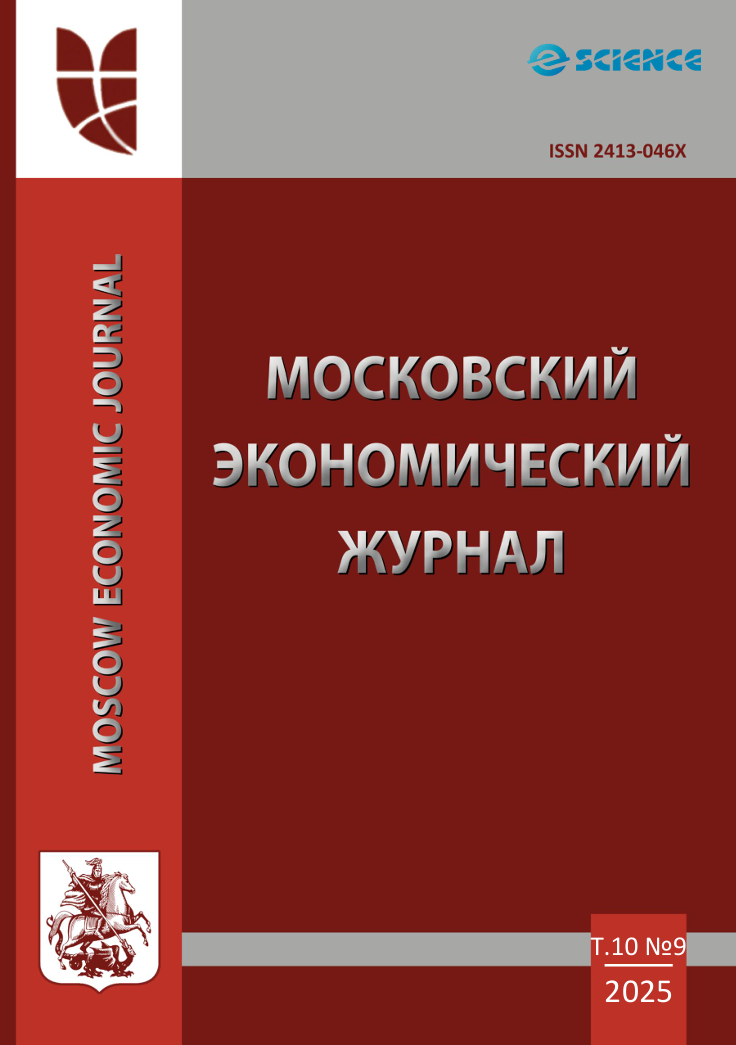Krasnodar, Krasnodar, Russian Federation
UDC 332.14
The article presents the results of scenario modeling for the author's cognitive map G of the complex system "Rice Production." A plan has been developed for a computational experiment on impulse modeling of scenarios in order to analyze the impact of changes in various conditions and the water management system in the Krasnodar Territory in relation to the cognitive model of the Rice Production system. Six scenarios have been developed for the cognitive map presented in the article: three scenarios showing systemic changes that occur when changes are made to one vertex, and three scenarios when changes are made to several vertices. In scenarios No. 1 - No. 3, a positive impulse is given to the cognitive model under study, which leads to an increasing nature of changes within the system, and as a result, food security is ensured, and risks in the system are reduced. The results of impulse modeling under scenarios No. 4 - No. 6 make it possible to assess the possible development of the situation when making changes to several peaks in conditions of the emergence of worse conditions and some counteraction to them. It was revealed that of all six scenarios, scenario No. 6 is the most optimistic and can be recommended as a basis for developing strategies for the development of the rice production system in the Krasnodar Territory. The authors believe that measures aimed at increasing rice yields should be comprehensive and systematic, which will take into account all possible changes arising in the complex Rice Production system.
economy, region, rice production, agrotechnology, food security, territory cognitive modeling, system, momentum, scenario
1. Malysheva N.N. K voprosu razvitiya otrasli risovodstva // Sovremennye tendencii razvitiya nauki i tehnologiy: sb. nauch. tr. po materialam V Mezhdunarod. nauch.-prakt. konf. – Belgorod, 2015. – № 5, ch. 1. – S. 71–73.
2. Sistema zemledeliya Krasnodarskogo kraya na agrolandshaftnoy osnove / A. N. Korobka [i dr.]. – Krasnodar, 2015. – 352 s.
3. Vladimirov S.A. Strategiya ustoychivogo ekologicheski bezopasnogo risovodstva. Monografiya. – Krasnodar: KubGAU, 2017. – 160 s.
4. Dobermann A. Productivity growth is important for sustainable rice production // Rice Today. – 2017. – Vol. 16. – № 4. – P. 34.
5. Joven B. Climate change action plans for rice farming: from concepts to implementation // Rice Today. – 2016. – Vol. 16. – № 4. – P. 26–28.
6. Maksimov V.I. Kognitivnye tehnologii – ot neznaniya k ponimaniyu. // Cb. trudov 1-y Mezhdunarodnoy konferencii «Kognitivnyy analiz i upravlenie razvitiem situaciy», (SASC’2001) – M.: IPU RAN, 2001. – T. 1. – S. 4-18.
7. Abramova N.A. Kognitivnyy analiz i upravlenie razvitiem situaciy: problemy metodologii, teorii i praktiki / N.A. Abramova, Z.K. Avdeeva // Problemy upravleniya. – 2008. – № 3. – S. 85–87.
8. Gorelova G.V. Issledovanie slabostrukturirovannyh problem social'no-ekonomicheskih sistem: kognitivnyy podhod / G.V. Gorelova, E.N. Zaharova, S.A. Radchenko. – Rostov n/D: Izd-vo RGU, 2006. – 332c.
9. Gorelova G.V. Kognitivnyy analiz vozmozhnosti ustoychivogo razvitiya sel'skih territoriy / G.V. Gorelova, A.A. Saak // Estestvenno-gumanitarnye issledovaniya. – № 5 (55). – 2024. – S. 297-305.
10. Programma dlya kognitivnogo modelirovaniya i analiza social'no-ekonomicheskih sistem regional'nogo urovnya. Svidetel'stvo o gosudarstvennoy registracii programmy dlya EVM №2018661506 ot 07.09.2018.











